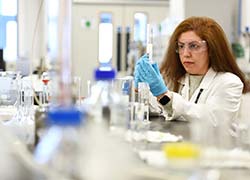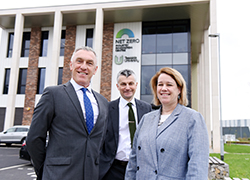Giving a voice to care leavers in education
Five students who have been in the care system have spoken of their positive experiences studying at Teesside University.
The quintet gave their views at the University’s Raising Aspirations for Young People in Care Conference.
The conference was attended by authority teams, social workers, foster carers and education staff to address issues and barriers facing looked after young people.
Dr Samantha Callan, Associate Director for Families and Mental Health at the Centre for Social Justice was also on hand to discuss the findings of the Centre’s report ‘Finding Their Feet – Equipping Care Leavers to Reach Their Potential’.
Nico Gaballonie, 19, a first year BA (Hons) Computer Games Art student, said: 'I have had a great experience at Teesside University and am always happy to get involved in events like this where we can get our voices across to those people who can make a real difference to the lives of young people in care.'
Rachel Close, 25, who is studying a master’s degree in social work, said: 'It has been a really good opportunity to speak directly to front line professionals and policy makers about our experiences of education. The response was really positive and everybody seemed to take on board what we were saying.'
Gemma Bottomley, 21, is studying BA (Hons) Childhood and Youth Studies.
She added: 'Studying here has been great for me – I’ve made a lot of new friends and the tutors are fantastic. I do feel it is important to get involved in events like this to try and give something back.'
Abbie English, Student Recruitment Officer at Teesside University, has organised the conference for the last three years.
She said: 'We are an inclusive university that believes passionately in widening participation.
'University empowers young people, not only through gaining qualifications but through the self-confidence, independence and social skills it develops. We hope that raising the aspirations of our young people in care and helping them succeed in education will go towards altering the cycle of disadvantage.'
 Supporting Nigerian farmers by transforming food waste into
...
Supporting Nigerian farmers by transforming food waste into
... International partnership signed with prestigious American
...
International partnership signed with prestigious American
... Teesside University academics join prestigious network of
...
Teesside University academics join prestigious network of
...